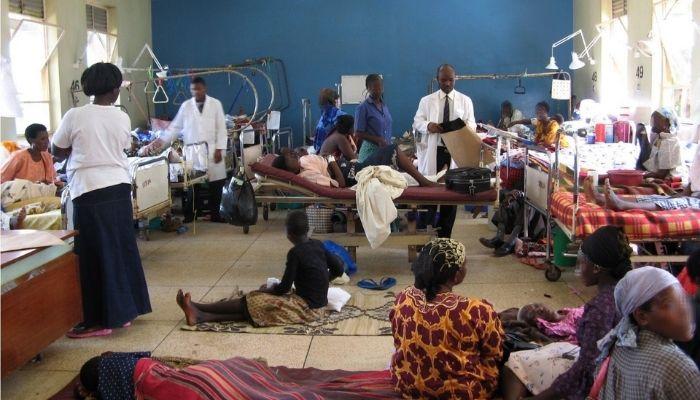The Association of Public Health Physicians of Nigeria (APHPN) has expressed deep concern over the dwindling investment in Primary Health Care (PHC) systems across the country, despite years of sustained advocacy. The group noted that the decline in support from government, private individuals, and communities continues to weaken the foundation of Nigeria’s health system, which relies heavily on functional PHC facilities for disease prevention and universal health coverage.
Speaking during a press conference in Abuja on Wednesday, the newly inaugurated President of APHPN, Dr. Terfa Kene, disclosed the association’s commitment to reversing the trend through the adoption and revitalisation of 222 PHC centres across the country. According to him, the initiative, which aims to adopt a minimum of six PHCs per state, will focus on improving service delivery and enhancing infrastructure in selected health centres.
While acknowledging that some progress has been made by the government, Dr. Kene insisted that such efforts remain inadequate when measured against the scale of Nigeria’s population and healthcare demands. “We are taking a bold step to adopt at least 222 primary healthcare facilities nationwide and channel our time, energy, and resources into improving their functionality. This includes essential service upgrades and infrastructure like renewable energy, particularly solar solutions, to ensure steady power supply,” he said.
To finance the project, Dr. Kene revealed that the association will tap into alternative funding streams, including crowdfunding, philanthropic donations, and institutional grants. He noted that APHPN will also rely on its network of members across states to deliver medical outreach, remote supervision, and telehealth services in the adopted centres.
As part of a broader vision to reposition public health practice in Nigeria, the association also announced plans to launch the APHPN Virtual School — a digital learning hub aimed at disseminating credible health knowledge and data. The school will operate from two main studio locations in Delta State and the Federal Capital Territory and will cater to public health professionals and the general public alike.
Dr. Kene added that the association is actively engaging Nigerian health experts in the diaspora to combat the effects of brain drain through collaborative knowledge-sharing and skills transfer. “We believe that the wealth of expertise among our colleagues abroad can be harnessed to uplift the capacity of our local health systems,” he noted.
Also speaking at the event, APHPN Secretary-General, Dr. Augustine Ajogwu, stressed the pivotal role of PHCs in preventing and responding to public health emergencies. He warned that without robust community-level surveillance systems tied to PHCs, Nigeria risks being perpetually vulnerable to disease outbreaks. “Outbreaks begin in communities and must be tackled there. Effective disease control starts with proper surveillance structures anchored at the grassroots,” he said.
Dr. Ajogwu further urged the government to deploy Medical Officers of Health in every Local Government Area, in line with international best practices. He pointed out that the World Health Organization advocates for at least one functional PHC in every political ward, a standard Nigeria is still far from achieving.
The association concluded its briefing with a renewed call for structural reforms, increased funding, and sustained advocacy to strengthen PHC systems nationwide. According to APHPN, the future of Nigeria’s health security depends on building a resilient foundation anchored in community-based care.

